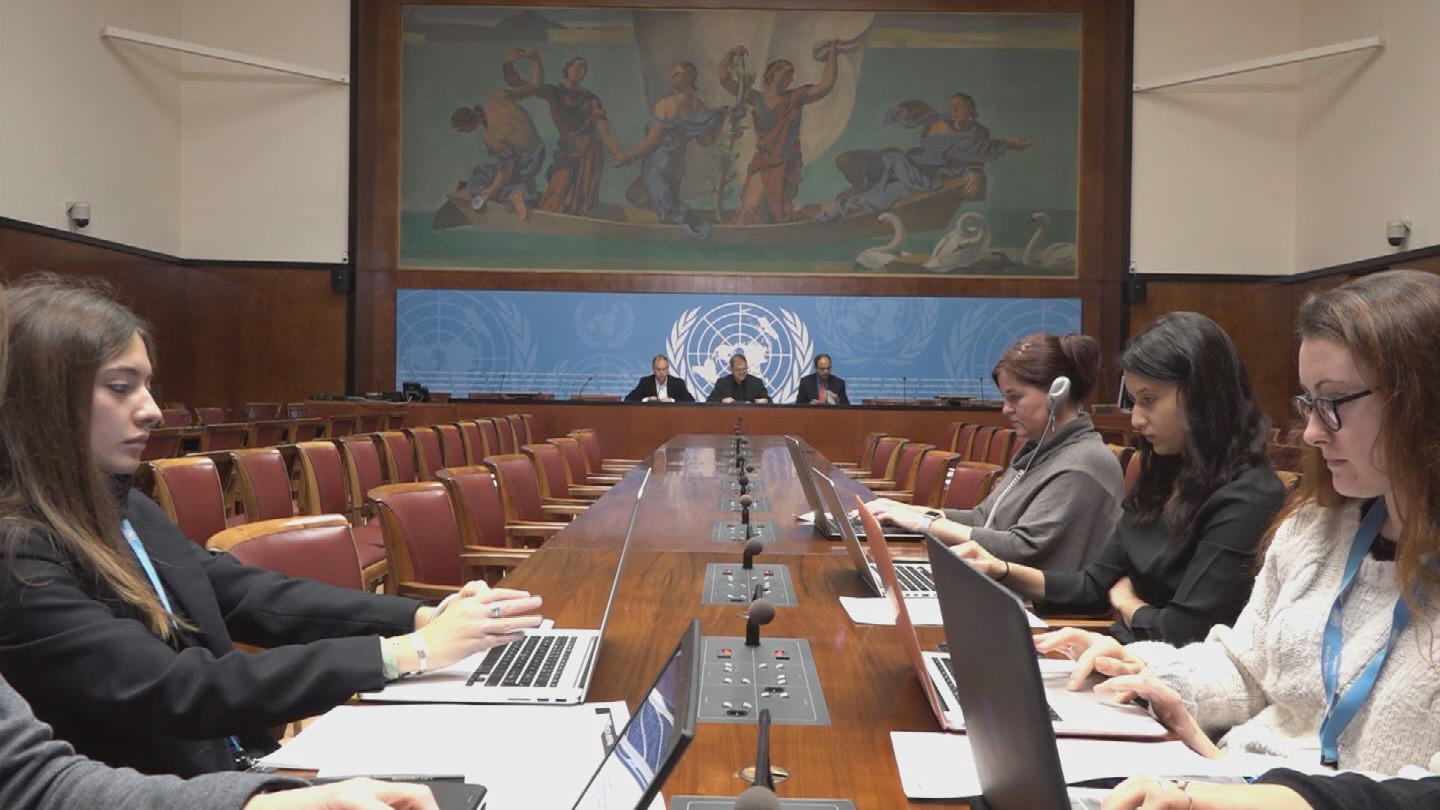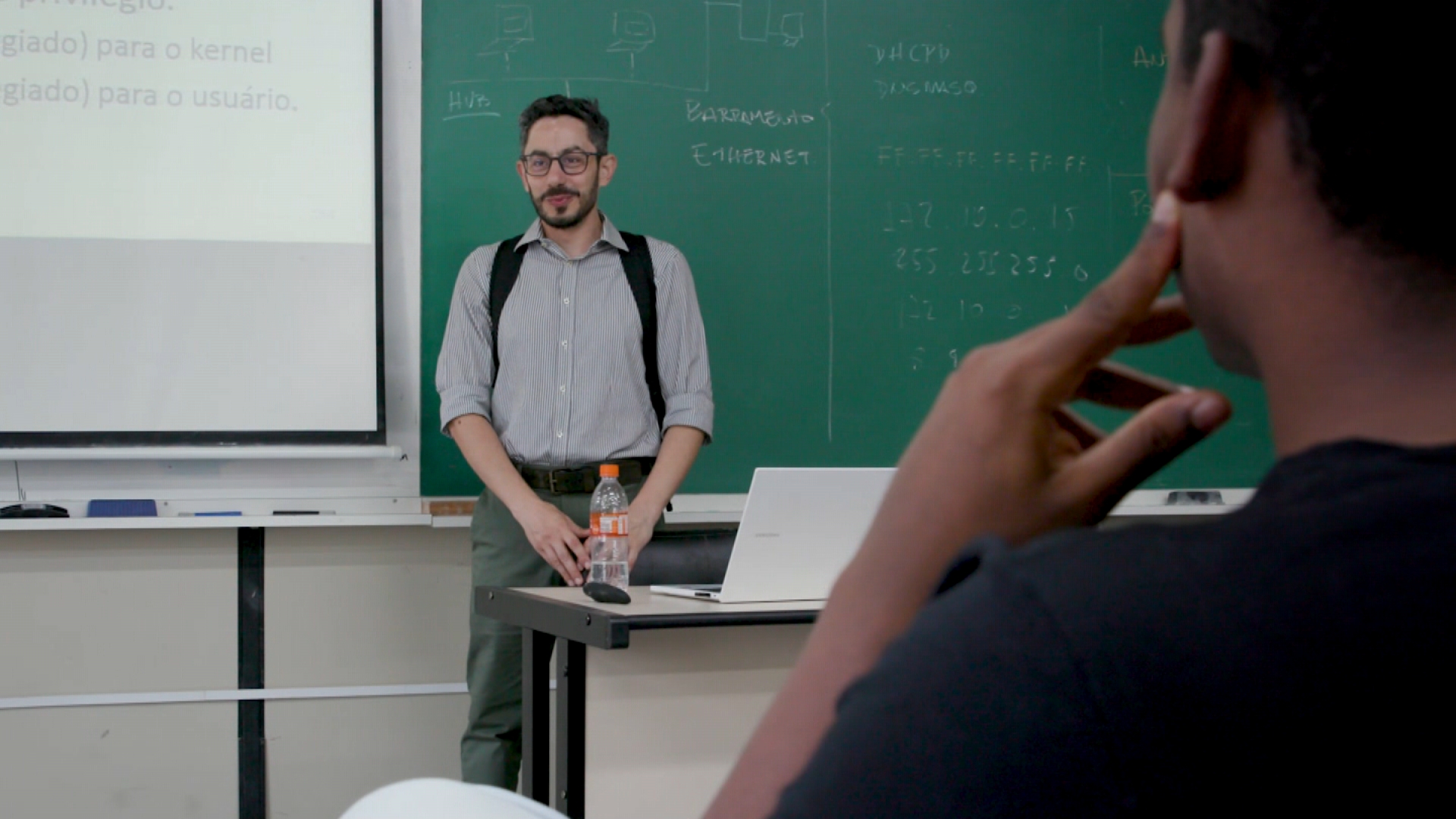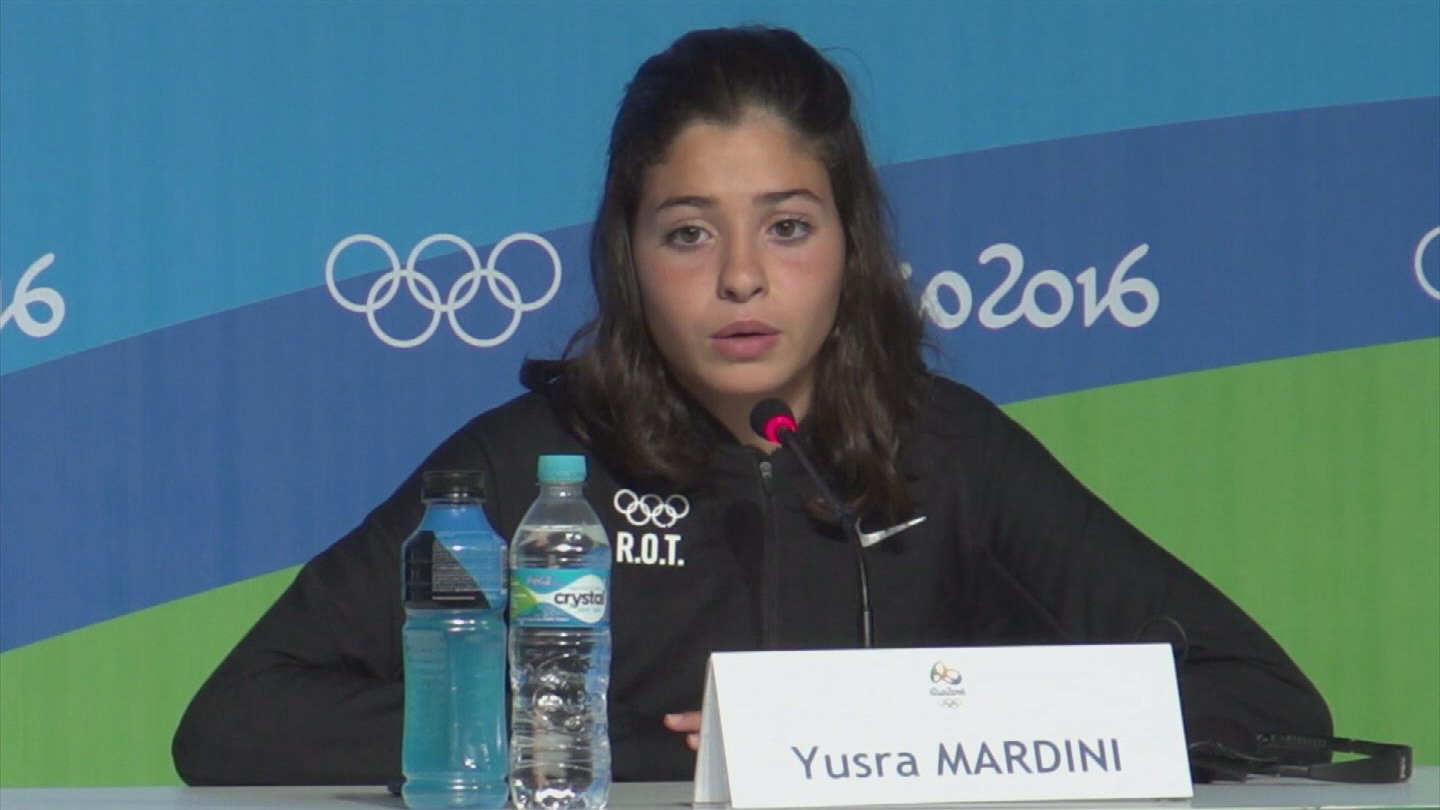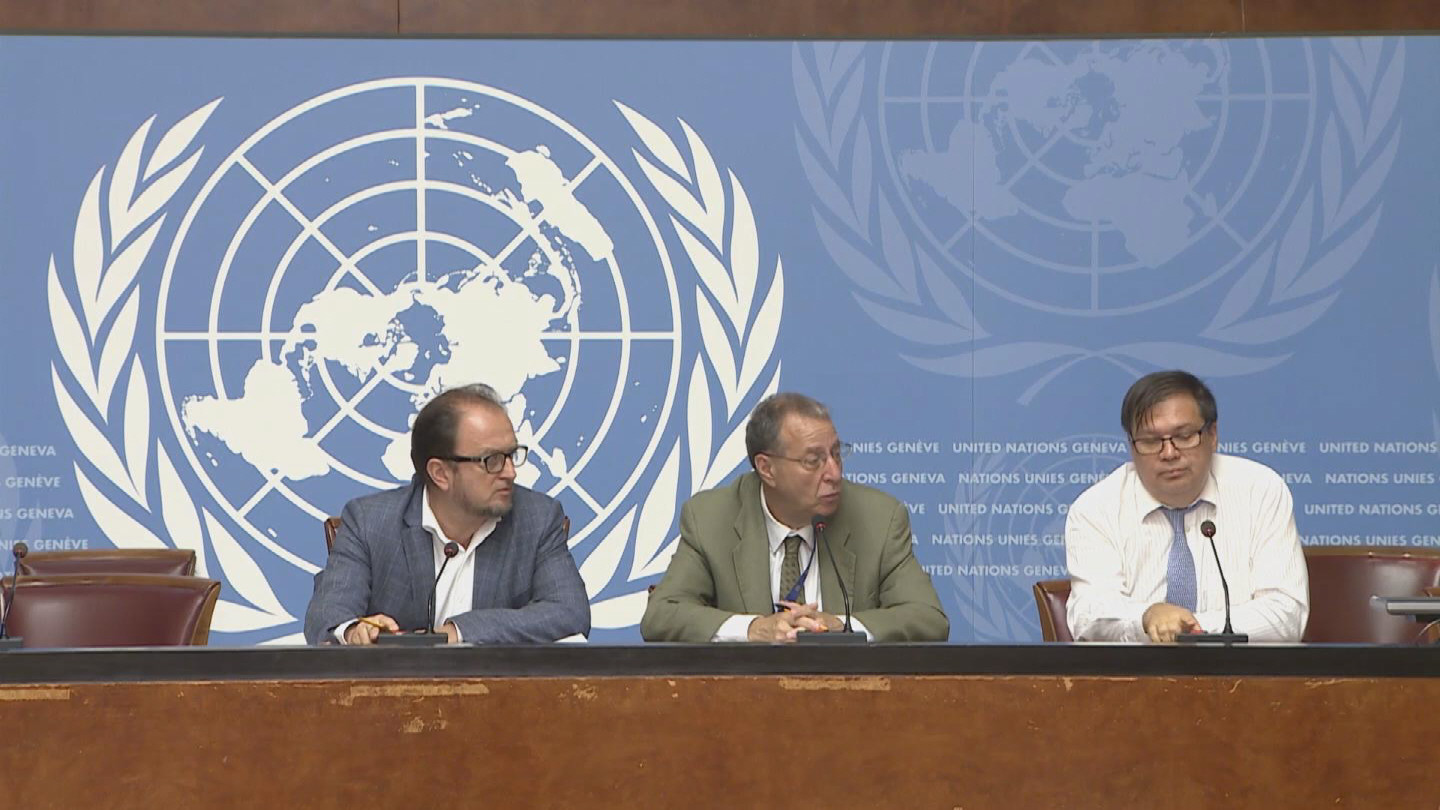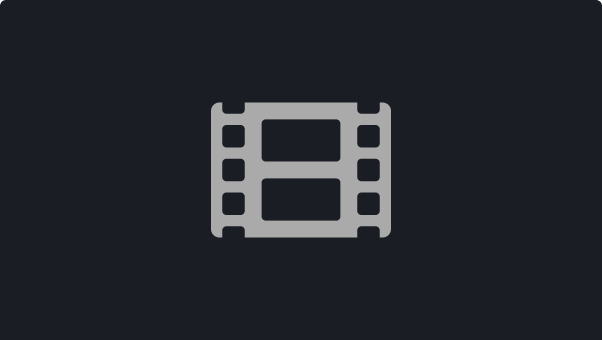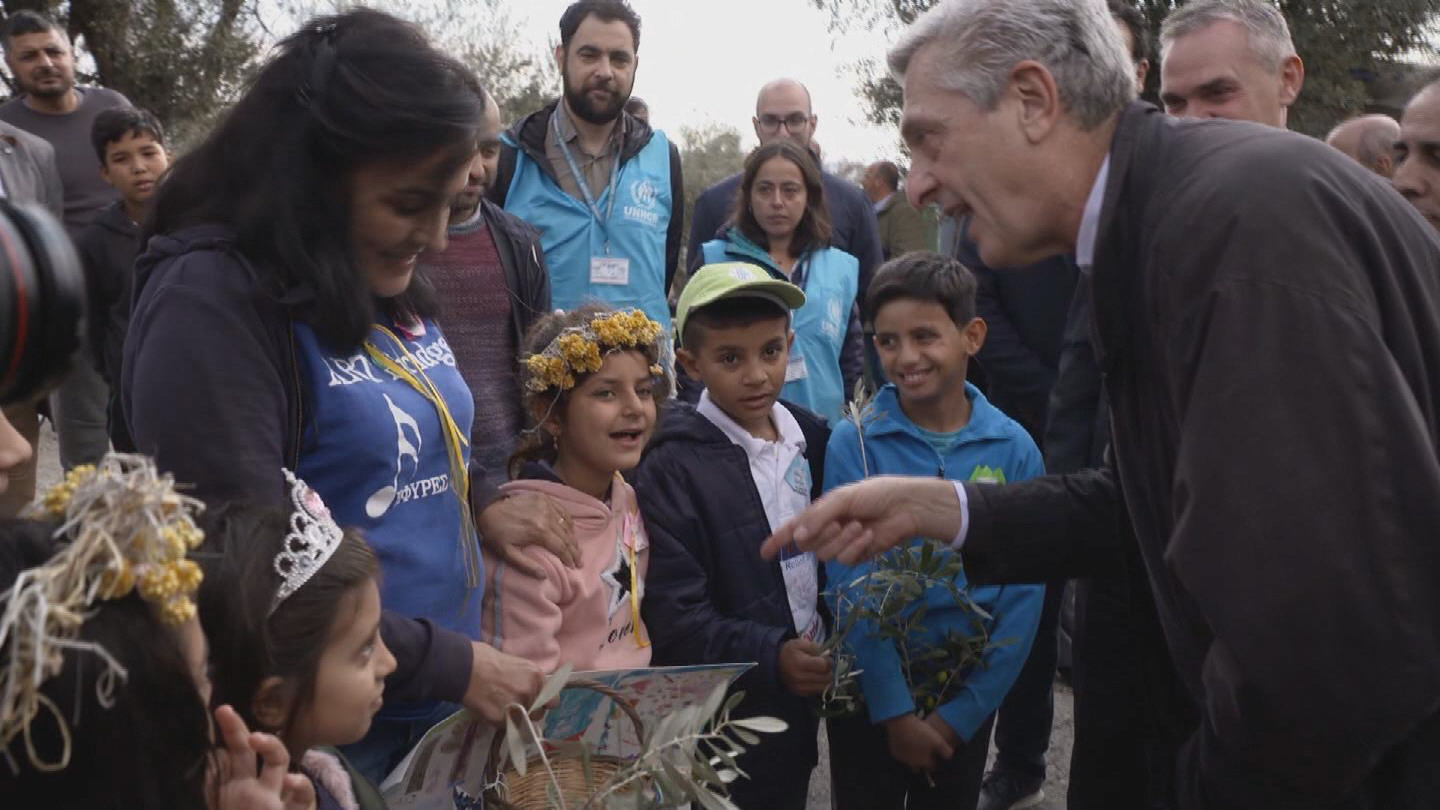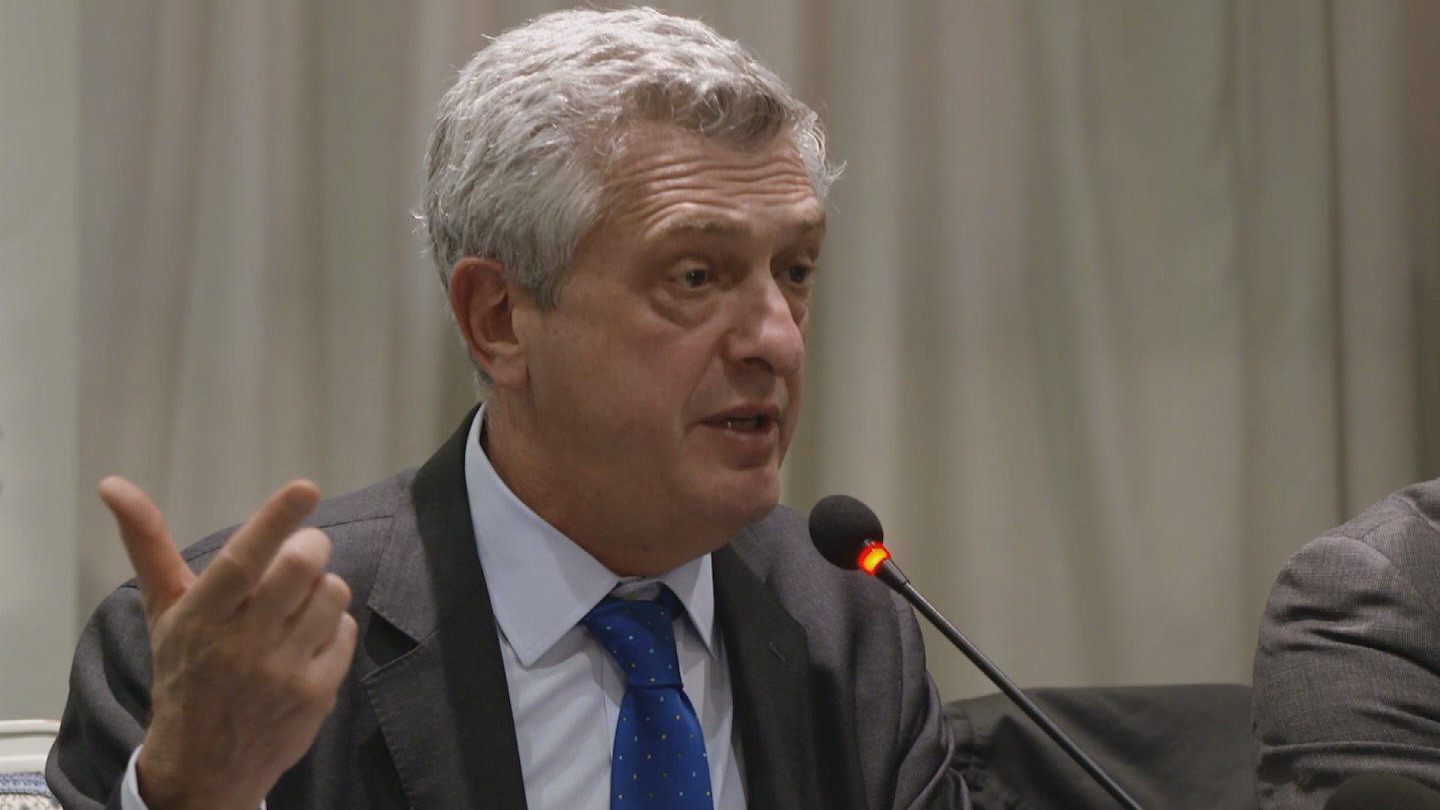Unifeed
BRAZIL / REFUGEES EDUCATION
STORY: BRAZIL / REFUGEES EDUCATION
TRT: 02:52
SOURCE: UNHCR
RESTRICTION: PLEASE CREDIT UNHCR ON SCREEN
LANGUAGE: ENGLISH / PORTUGUESE
DATELINE: 05 DECEMBER 2017, SAO PAULO, BRAZIL
1. Med shot, Selim signaling the bus
2. Close up, Selim in the bus
3. Med shot, Selim going down the escalator
4. Med shot, Selim at work
5. Med shot, Selim talking with a colleague
6. Close up, Selim with papers
7. SOUNDBITE (Portuguese) Selim Al Nazer, Pharmacist at Jadlog:
“I have dreams, and I like to strive to reach them, to have a better life, and to win. I do it for myself and my family.”
8. Various shots, Selim talking with his boss
9. SOUNDBITE (Portuguese) Brenno Borges, Director at Jadlog:
"If he hadn't had his diploma revalidated, then he wouldn't have had this opportunity. But he had to fight for it to be recognised. So why close the door to this person, knowing he meets all the requirements? He has studied, has the experience and the knowledge."
10. Various shots, Selim doing paperwork
11. Close up, Selim typing on his computer
12. UPSOUND (Portuguese) Andre Leitao, Director at Compassiva:
“The diploma recognition is much more than just a piece of paper. Validating a diploma is the first step in these people getting back their dignity and their identity.”
13. Various shots, Camila in a meeting with Yusef a Syrian refugee
14. UPSOUND (Portuguese) Camila Suemi, Lawyer at Compassiva:
"Once someone has refugee status, we can begin the process. The law guarantees that even if you don't have all the required university documents, you have a right to undertake enter the process of having your diploma validated."
15. Various shots, refugees at language class
16. Various shots, Selim, his wife and children having a meal
17. SOUNDBITE (Portuguese) Salsabil Matouk, pharmacist and Selim's wife:
"He used to work on Saturday and Sunday, sometimes until 10 at night. It was really bad, it was impossible to get a hold of him, to have a conversation. But since he started this job, he comes home at normal hours, and he helps with the kids and school."
18. Various shots, Matouk cooking
19. SOUNDBITE (English) Selim Al Nazer, Pharmacist:
"I always had hope. I never forgot the hope. Without hope you cannot do anything, you will see everything closed. With hope, even if a door is closed, you can see it opening later."
This is Selim, a pharmacist from Damascus. Like many refugees, he had to work small jobs to survive.
But three months ago, he found his calling again in Brazil, as a pharmacist.
SOUNDBITE (Portuguese) Selim Al Nazer, Pharmacist at Jadlog:
"I have dreams, and I like to strive to reach them, to have a better life, and to win. I do it for myself and my family."
Selim was able to get a good job in his field because his higher education degree was legally recognised by the government.
SOUNDBITE (Portuguese) Brenno Borges, Director at Jadlog:
"If he hadn't had his diploma revalidated, then he wouldn't have had this opportunity. But he had to fight for it to be recognised. So why close the door to this person, knowing he meets all the requirements? He has studied, has the experience and the knowledge."
Compassiva, a Brazilian NGO, works to change public perception of refugees by helping win recognition for their skills and school degrees
UPSOUND (Portuguese) Andre Leitao, Director at Compassiva:
"The diploma recognition is much more than just a piece of paper. Validating a diploma is the first step in these people getting back their dignity and their identity."
Camila, a lawyer, specialises in diploma validation. Her work with Compassiva has scaled up as the numbers of Syrian refugees in Brazil, many highly skilled with university degrees.
UPSOUND (Portuguese) Camila Suemi, Lawyer at Compassiva:
"Once someone has refugee status, we can begin the process. The law guarantees that even if you don't have all the required university documents, you have a right to undertake enter the process of having your diploma validated."
It can take over a year to go through the complex process and costs for each application can run over 500 dollars, forcing many refugees to give up. But thanks to support from the UNHCR, Compassiva can now expand its work to help more refugees.
Refugees in the programme also take a 2-year language class. Learning to speak and write Portuguese is key to integrating into the workforce. Finding a stable job for Selim means more than just a steady salary.
He works regular hours and can spend more time with his family
SOUNDBITE (Portuguese) Salsabil Matouk, pharmacist and Selim's wife:
"He used to work on Saturday and Sunday, sometimes until 10 at night. It was really bad, it was impossible to get a hold of him, to have a conversation. But since he started this job, he comes home at normal hours, and he helps with the kids and school."
Selim fled home in 2013, and travelled to Jordan, Saudi Arabia, and Malaysia before Brazil. But his drive never abandoned him, nor his hopes for a brighter future.
SOUNDBITE (English) Selim Al Nazer, Pharmacist:
"I always had hope. I never forgot the hope. Without hope you cannot do anything, you will see everything closed. With hope, even if a door is closed, you can see it opening."
Download
There is no media available to download.
